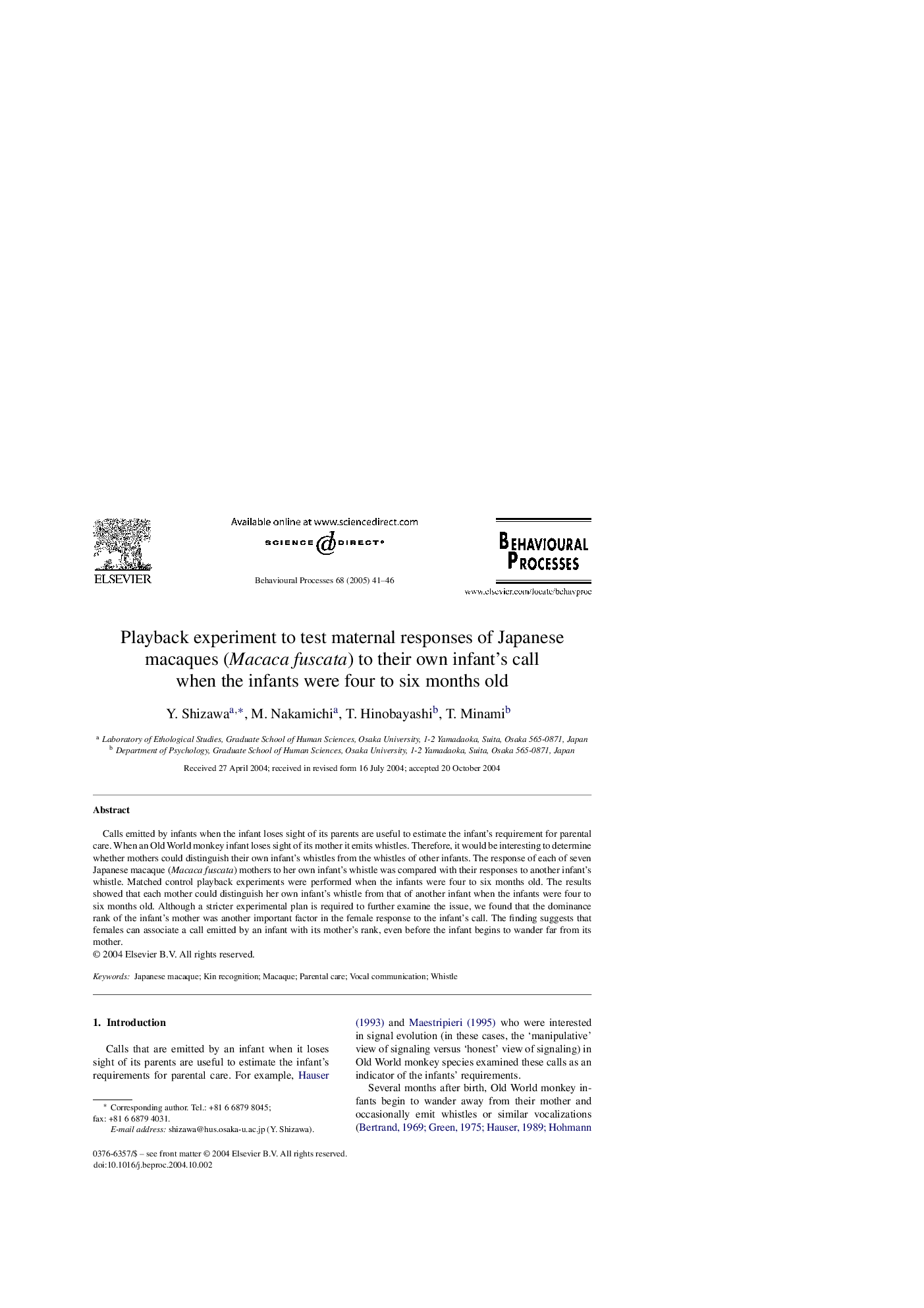| Article ID | Journal | Published Year | Pages | File Type |
|---|---|---|---|---|
| 8977418 | Behavioural Processes | 2005 | 6 Pages |
Abstract
Calls emitted by infants when the infant loses sight of its parents are useful to estimate the infant's requirement for parental care. When an Old World monkey infant loses sight of its mother it emits whistles. Therefore, it would be interesting to determine whether mothers could distinguish their own infant's whistles from the whistles of other infants. The response of each of seven Japanese macaque (Macaca fuscata) mothers to her own infant's whistle was compared with their responses to another infant's whistle. Matched control playback experiments were performed when the infants were four to six months old. The results showed that each mother could distinguish her own infant's whistle from that of another infant when the infants were four to six months old. Although a stricter experimental plan is required to further examine the issue, we found that the dominance rank of the infant's mother was another important factor in the female response to the infant's call. The finding suggests that females can associate a call emitted by an infant with its mother's rank, even before the infant begins to wander far from its mother.
Related Topics
Life Sciences
Agricultural and Biological Sciences
Animal Science and Zoology
Authors
Y. Shizawa, M. Nakamichi, T. Hinobayashi, T. Minami,
